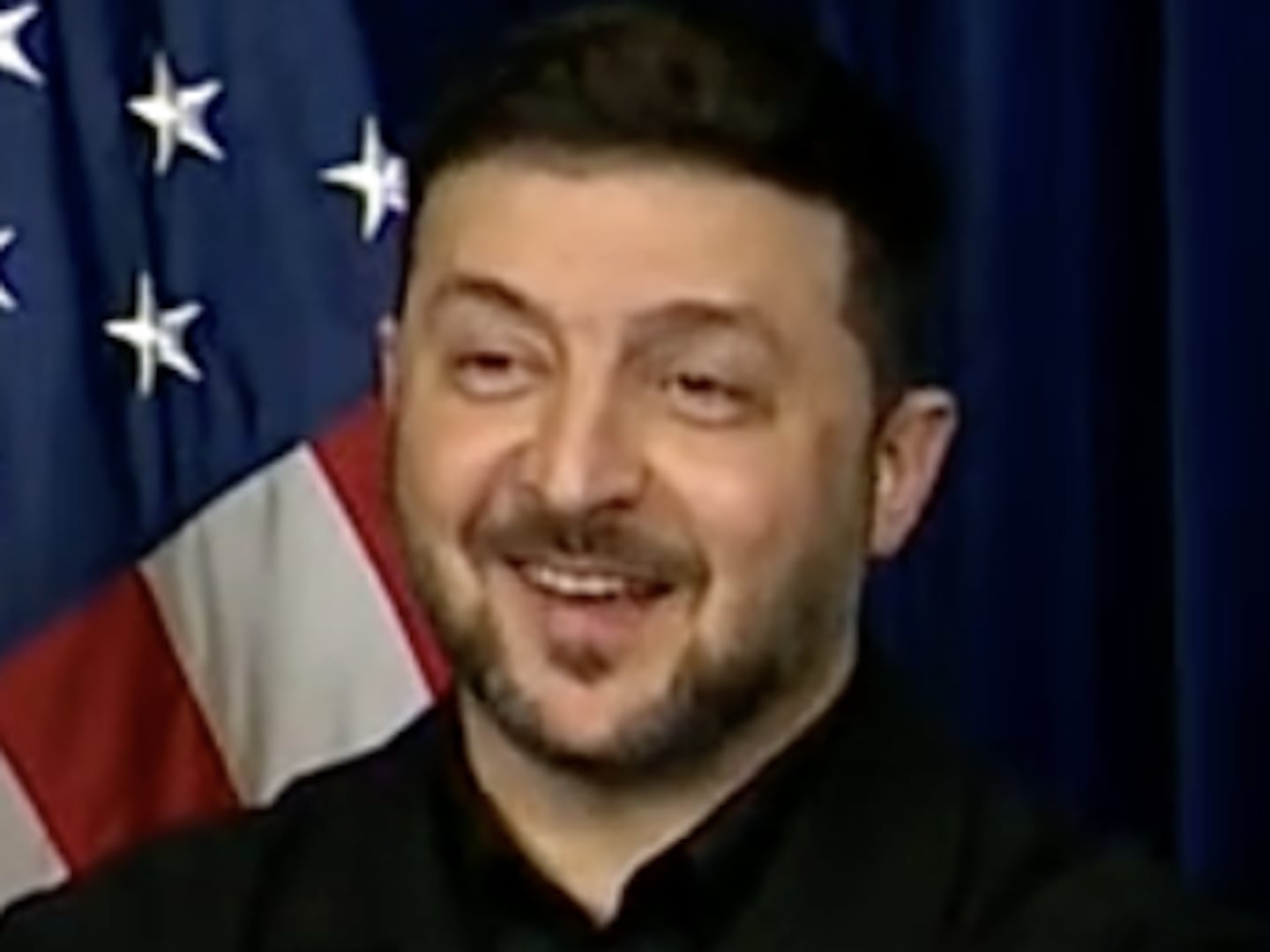What a difference a year makes, particularly in the life of a serialized television narrative.
At this time last year, ABC’s Revenge—Mike Kelley’s modern-day retelling of Alexandre Dumas’s The Count of Monte Cristo, set among the Hamptons polo set—was a dazzling vengeance fantasy, reveling in its dark nature and the even darker journey of Emily Thorne (Emily VanCamp), a woman scorned who was out for payback against the wealthy clan who destroyed her life and shattered her family.

It functioned on several levels and tapped into the zeitgeist of 2012; it could be seen (as I had written) as “not only winking noir … [but also as] a retribution fantasy for the 99 percent,” as Emily looked to take down the conspirators who ruined her life and set up her father (James Tupper) as a fall guy for a terrorist-funded financial scheme that resulted in the downing of a passenger plane. Her vast fortune—acquired from a tech mogul, Nolan Ross (Gabriel Mann), whom her father had helped when he was starting out—was used in service of her holy mission of vengeance.
And each week, Revenge found Emily immolating her sense of morality as she concocted yet another grandiose revenge scheme, caring little about the collateral damage she was causing around her. She was entrancing, as I wrote last year: “Emily—criminal mastermind, computer hacker, cat burglar, and willing arsonist, not to mention a ronin in Giuseppe Zanotti stilettos—recalls Stieg Larsson’s Lisbeth Salander as much as she does Dumas’s Edmond Dantès.”
Where did that character disappear to? Season 2 of Revenge has seemed, in comparison to its deftly (and magnificently) plotted first season, a convoluted mess. Rather than further the central conceit—Emily’s quest for revenge against the Grayson clan, headed by femme fatale Victoria (Madeleine Stowe) and robber baron Conrad (Henry Czerny)—the show has meandered into all manner of narrative trouble: plots about a broader conspiracy, psychotic mothers, vengeance buddies (see: Barry Sloane’s Aiden), computer programs, kidnapped sisters, waterfront shakedowns, lazy double-crossings, and a ruthless terrorist organization called The Initiative, whose operative (Wendy Crewson) appears to do little besides be chauffeured around New York all day long.
In the first season, Stowe’s Victoria provided a menacing nemesis for Emily, but her role has been usurped by The Initiative, which is more evil and ruthless than even Victoria. But that’s a problem: by making Victoria the puppet of people even worse than her, it’s taken away much of her power. Additionally, Crewson’s Helen Crowley proved to be not half as interesting, complex, or scary as Victoria Grayson. The balance of power didn’t just shift in Season 2, it fell right off the scales.
Season 1’s overarching mystery—just what happened on the beach the night of Emily’s engagement party?—was a taut and twisty riddle waiting to be solved, promising carnage on the sands of the Hamptons and at least one dead body. It worked because everyone from Emily on down was a suspect in what appeared to be the murder of her fiancé, Daniel (Joshua Bowman). But it would have been impossible to recreate the magic of that reveal—or of the anticipation involved—again. Still, Kelley and his writing team attempted to infuse this season with another withheld reveal: what happened aboard the Amanda, the yacht that went down in the Atlantic? And whose disembodied hand was floating in the wreckage?
Things started to go wrong for Season 2 right from the beginning, as a pair of local toughs, the Ryan brothers (Michael Trucco and J.R. Bourne), began harassing Jack (Nick Wechsler) themselves looking for revenge upon the people who had killed their own father years before. While it was meant to reflect Emily’s struggle for revenge through a prism of primal male rage, the storyline was ludicrous and flimsy, and lacked the scale or stakes of Emily’s mission.
Whereas before Emily was the show’s central character, a sleekly stylish avatar of retribution, she has been largely shoved out of the spotlight this season, as the show has become overcrowded with too many B- (and even C- and D-) stories focusing on the supporting cast. Emily and Nolan’s twisted yet strangely sympathetic rapport has been too rarely seen in the show, with both of them off on their own adventures or mired in their own problems. Their odd and engaging friendship gave Revenge some real flintiness, even as Emily ricocheted between her feelings for Daniel, Jack, and now Aiden.
But while the Ryan brothers were cardboard villains, the irksome plot did have one upside: namely, the elimination of Jack’s wife, Amanda (Margarita Levieva), who had years before exchanged identities with Emily. (Still following this?) Amanda and Emily’s noir-tinged relationship was one of the first season’s strongest elements, each woman a shattered mirror image of the other, each concealing the other’s secrets and crimes. But something happened along the way: Amanda, once so unpredictable, became incredibly dull. Perhaps it was the birth of her baby, or her wedding, or her inability to think through a blackmail plot, but Amanda became a leaden weight affixed to the show.
Her death, in the February 17 episode (“Sacrifice”), however, might have been a ray of hope for this once great drama, pushing Emily and Jack together and uniting them in both their grief and their thirst for vengeance. (I only wish that Declan and Christa B. Allen’s Charlotte had also been aboard the boat when it exploded and sank, as their plots have become painfully tedious.) Amanda’s death—a pyrrhic victory and an act of sacrifice to save both Jack and Emily—once again raised the game on a show that had lost sight of its own narrative stakes. Whether it’s Emily or Victoria or Aiden, what danger is there when the characters manage to evade death time and time again? Or, alternatively, if there are no real emotional stakes?
The ongoing nature of Revenge also hasn’t done itself any favors.
Season 1 was so thrilling and volatile because it initially held the promise of a resolution at the end of its season-long arc. A full-season order and then a second season renewal meant that Revenge would have to continue in some form and this season, the show contorted itself into an increasingly tight pretzel shape in order to justify the narrative’s continued existence: Emily’s missing mother (Jennifer Jason Leigh) turned up, went crazy, and disappeared again. The White-Haired Man (James Morrison), so tantalizingly creepy in his appearance last season, was felled pretty quickly. Daniel, once a perpetual screw-up, now runs his father’s financial empire. Social climber Ashley (Ashley Madekwe) has been hired and fired by the Graysons so many times now that she no longer needs COBRA insurance coverage.
Revenge likely would have benefited from a shorter close-ended run, rather like Fox’s similarly high concept thriller Prison Break, which became particularly overwrought in its later seasons. Not knowing how long a show is going to run—which is typically the case in American television, which prizes both 22-episode seasons and 10-year runs—can cramp creativity by prioritizing longevity over stability.
A limited-run series, one with a distinct beginning, middle, and end, reminds the viewer of the power of the close-ended form: the stakes can be much higher because no one character—either emotionally or physically—is safe. Just as we know that Emily will never be killed (nor Victoria, no matter what a cliffhanger ending might lead the viewer to believe), so too does the show reside in the valley of safety. Which is a shame, as Revenge seemed to want to embrace its dangerous nature and puncture viewer expectations, but it has lately become another predictable primetime soap.
While “Sacrifice” and the promos for Sunday’s episode—the first of eight new episodes left this season—points toward some overall improvement (or an acknowledgment that certain plots just aren’t working), Revenge needs to regain its footing once more, or it risks—like Emily’s infinity-branded secrets—being placed in a box under the stairs and forgotten.






